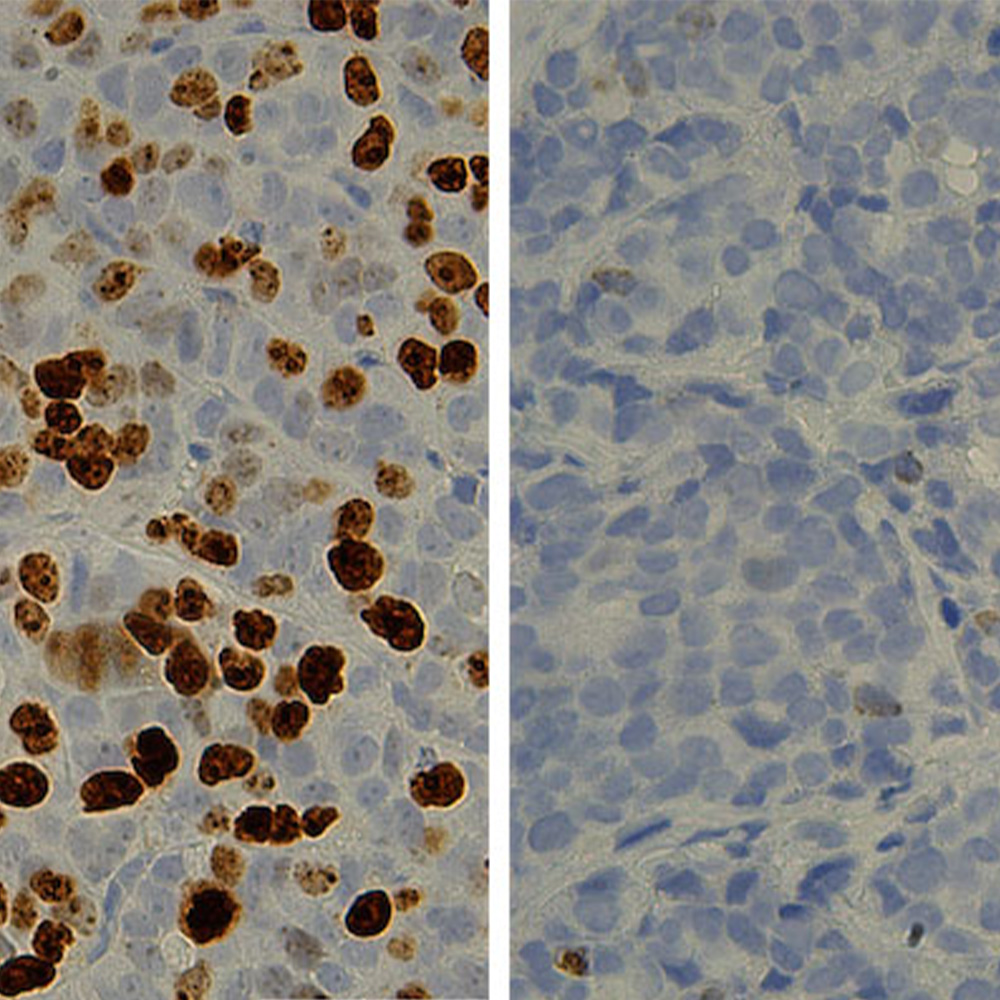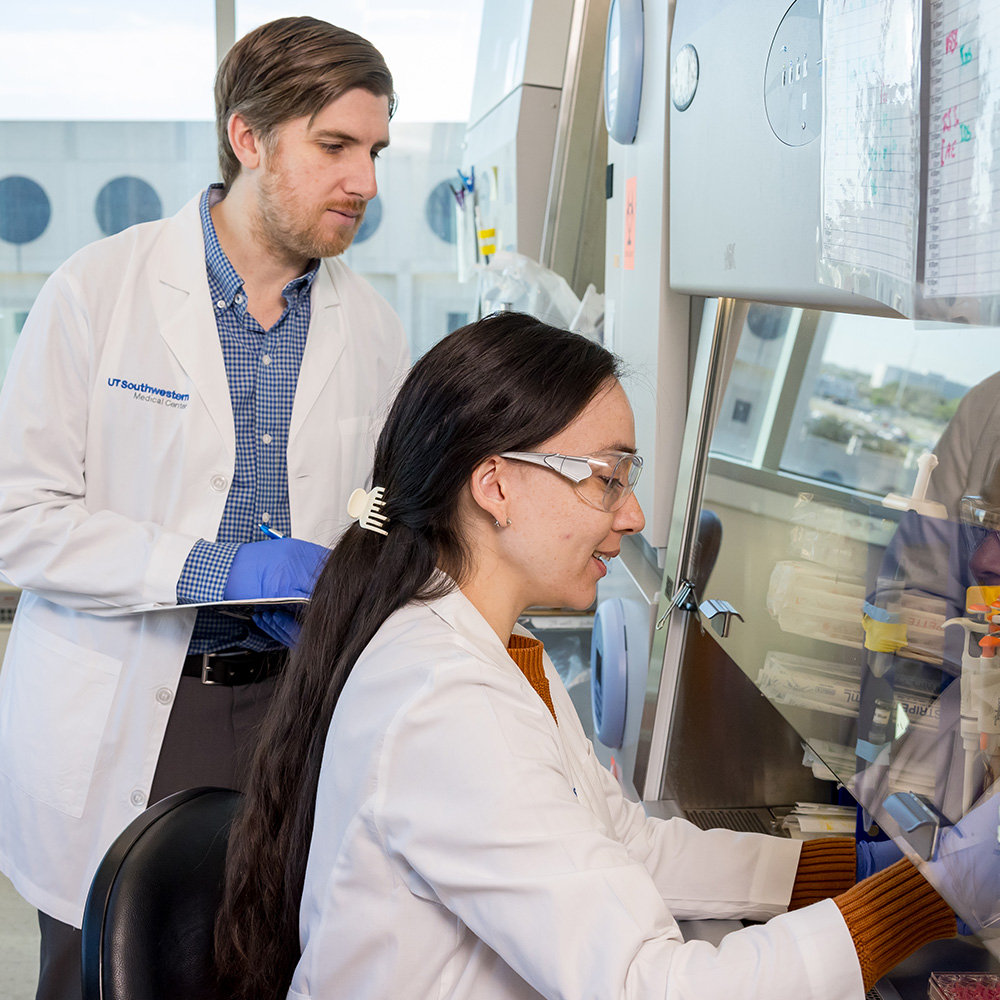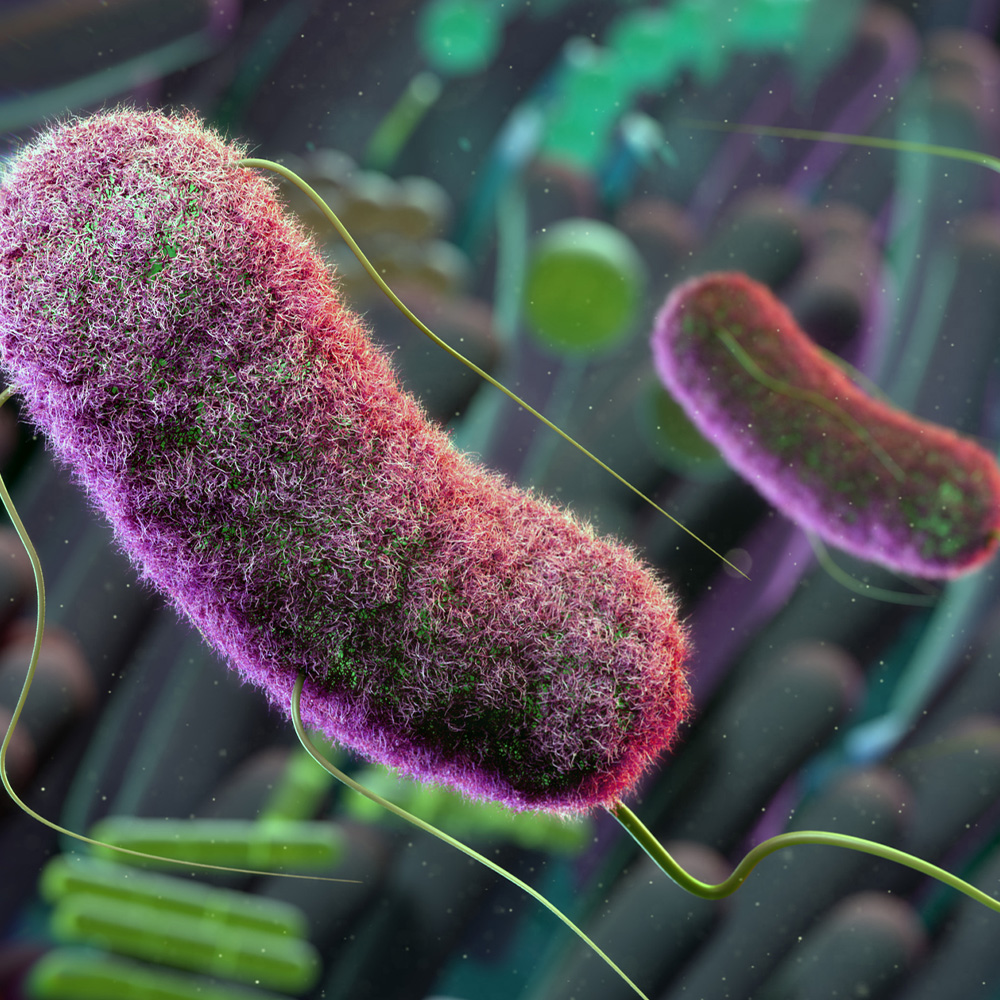Simmons Cancer Center aims to improve outcomes through personalized, targeted treatments

When Katie Ballard went to an emergency room at UT Southwestern Medical Center in September 2013 due to pain and swelling in her abdomen, ovarian cancer was the furthest thing from her mind.
But Ms. Ballard, an SMU graduate who received a bachelor’s degree in journalism last year, quickly discovered she had a large pelvic mass, rare for someone in her 20s. Dr. Debra Richardson, Assistant Professor of Obstetrics and Gynecology, and a gynecologic oncology surgeon at UT Southwestern’s Harold C. Simmons Comprehensive Cancer Center, and her team removed the tumor weighing nearly four pounds. One of her ovaries and one fallopian tube also were removed, along with more than 30 lymph nodes.
Since the surgery at UT Southwestern’s former St. Paul University Hospital did not require removal of Ms. Ballard’s uterus or other ovary, she then met with UTSW Reproductive Endocrinology and Infertility Division specialists to undergo oocyte preservation. The procedure freezes eggs, making them available for future use in the event of cancer recurrence or other unforeseen issues.
“I never expected my life to change so dramatically in five days,” said Ms. Ballard, now a strong advocate for screening efforts.
To handle the various complexities of cancer prevention, treatment, and other issues surrounding the disease, the Simmons Cancer Center weaves clinicians, surgeons, and caretakers into a dozen Disease-Oriented Teams. Their focus is on treating the whole patient by combining the optimal mix of innovative and cutting-edge treatments, therapeutics, surgical techniques, and potential clinical trials with the support needed to coordinate and help address the many peripheral issues that can surround care, from finances to psychological support.
The teams also serve as incubators for new ideas in the fight against cancer, including investigations to find unknown cancer biomarkers and to develop strategies for reducing cancer deaths. The teams work closely with basic science investigators to foster translational research, helping to develop promising discoveries made at UT Southwestern into practical treatment advances. All of this takes place within the Simmons Cancer Center, which in July attained the National Cancer Institute’s (NCI) Comprehensive Cancer Center designation, the highest designation achievable that now places UT Southwestern among the nation’s top-tier cancer centers.
“If you’re a patient with a cancer diagnosis, then access to an NCI-designated Cancer Center means everything,” said Dr. James Willson, Director of the Simmons Cancer Center and a colon cancer specialist.
Since 2009, the numbers of patient visits, clinical trials, and square footage at the Simmons Cancer Center have all doubled. And expansion is underway again, with renovations and new lab and clinical space in the works, including a new building for the Department of Radiation Oncology. Beyond Dallas, UT Southwestern has launched the Harold C. Simmons Comprehensive Cancer Center Fort Worth, added cancer services to its Clinical Center at Richardson/Plano, and expanded available services at the Moncrief Cancer Institute in Fort Worth.
The Simmons Cancer Center’s multidisciplinary Disease-Oriented Teams tackle each major cancer – lung, breast, gastrointestinal, brain, head and neck, lung, genitourinary, blood, gynecologic, melanoma, and sarcoma. These teams are comprised of medical, surgical, and radiation oncologists; pathologists; translational scientists; research nurses; study coordinators; clinical support personnel such as social workers and genetics counselors; and data specialists. Each team reviews clinical trial concepts, including investigator-initiated trials, cooperative group trials, and industry-sponsored studies, and prioritizes and monitors studies for their specific disease site. Clinical trials range from first-line treatments to advanced-stage cancer therapies, and also include prevention and new-agent trials.
“It’s important to remember that cancer is not a single disease, but a grouping of myriad diseases with different causes, which holds distinct opportunities for prevention or early detection,” said Dr. Willson.
Preventive strategies can include not only lifestyle changes, but also avoiding substances that have been associated with cancer, such as asbestos. It also means identifying precancerous conditions and utilizing chemoprevention medicines that can treat those conditions or avoid cancer recurrence.
For example, selective estrogen receptor modulators such as tamoxifen or raloxifene have been shown to reduce the potential of breast cancer development in women at high risk, according to the NCI. And researchers, including those at UT Southwestern, are studying a class of anti-inflammatory drugs called COX-2 inhibitors for prevention of colorectal and breast cancer. Preventing infections that can lead to certain types of cancer is another line of defense. Vaccinations against hepatitis B and certain strains of HPV, or human papillomavirus, are examples.

Brianna Hinojosa-Flores believes in taking a proactive approach. In 2013, she felt a lump above her right breast. A mammogram, ultrasound, and biopsy revealed triple negative breast cancer – one of the hardest types to treat. Mrs. Hinojosa-Flores began chemotherapy immediately. At the time of her double mastectomy, pathology results confirmed that she had a 100 percent response to the chemotherapy. Because this cancer type is so aggressive and can recur, however, surgery went on as planned. Luckily for Mrs. Hinojosa-Flores, no live cancer cells remained in the right breast area, and she did not need additional treatment, such as radiation.
But Mrs. Hinojosa-Flores wasn’t done. She wanted to help others. So she joined a local arm of an ongoing national clinical trial led by Dr. Roshni Rao, Director of the George N. Peters, M.D., Center for Breast Surgery, to collect DNA samples of triple negative breast cancer survivors. The effort is part of a large study attempting to identify risk factors for this hard-to-treat disease.
Today, she’s back at work as an attorney, serves on her local City Council, enjoys time with her family, and shares her experience with other women who have been diagnosed with triple negative breast cancer at an early age.
“I wasn’t the only one who went through this journey; my whole family was a part of it, and they too need to heal,” Mrs. Hinojosa-Flores said. “I need to find my new normal, which has included slowing down and re-evaluating my priorities.”
This is where the Simmons Cancer Center’s Oncology Supportive Care team comes in. The team helps patients and their families manage the emotional, social, financial, dietary, and spiritual aspects of cancer.
“Our multidisciplinary team includes professionals who have advanced training and years of experience working with people diagnosed with cancer. The oncology supportive care team includes a psychologist, social workers, music therapists, and dietitians – all of whom are focused solely on strengthening, relieving, and comforting our patients and their families,” said Dr. Jeff Kendall, Associate Professor of Psychiatry and Clinical Leader of Oncology Supportive Services.
The team also offers an EMBRACE Survivorship Program that consists of 10 seminars, each designed to assist survivors and their families with issues that can arise during the cancer journey. The program centers on Energy, Mind/Body, Relationships, Active Nutrition and Creative Expression (EMBRACE).
In addition, support groups, led by licensed social workers, are regularly held for ovarian cancer, thoracic and lung cancer, prostate cancer, breast cancer, brain cancer, oral and head and neck cancer, and partners of women with cancer.
###
Dr. Willson holds The Lisa K. Simmons Distinguished Chair in Comprehensive Oncology.




